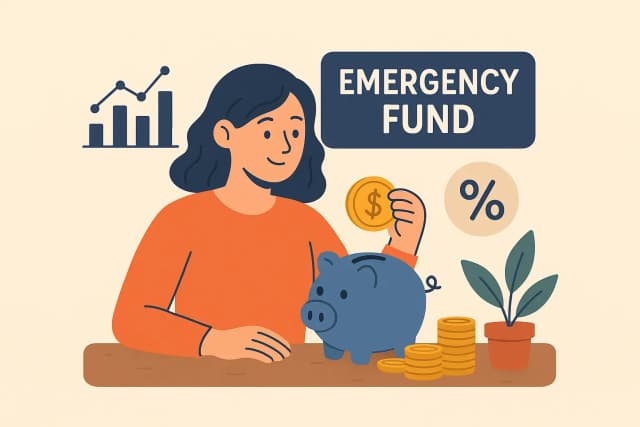Grow Wealth
Savings
How Money Grows; Interest And Investing Explained
Money can grow over time if you put money into things that generally go up over time, such a house, shares or high interest savings accounts. Investing your money is the best way to increase your wealth over time.
With enough time, investments can increase significantly through something called compounding. Compounding simply means that money you make is based on the current balance. So, if you receive interest on your savings, then the next month you are also receiving interest on the money you earned in the previous months. The same is true of appreciating assets, if they increase by a percentage today, and they increase by the same percentage again, then you will make more money than you did yesterday.
For example, if your house is worth 1 million and it increases by 10% in a year, the next year it is worth $1.1 million, that’s an increase of $100,000. If the following year it also increases by 10% it would be worth 1.21 million. That’s an increase of $110,000. You can see that over time; compounding can have a dramatic effect on your wealth.
The key to growing wealth is to have money invested in things that generally go up in value, and to add to those assets over time. You can this way speed up the effect of compounding, by also adding to your investments can also increase the value of them more quickly.
Understanding how money grows is only one part of the journey. Just as important is knowing why you want your money to grow and what you hope it will enable you to do. This process starts with a bit of honest self-reflection about your relationship with money and considering the lifestyle or sense of security you wish to build for yourself and your loved ones.
Everyone’s approach to money is shaped by their background and personal values. Some people see money as a means to security, others as a way to experience life’s pleasures, and many fall somewhere in between. Taking the time to reflect on your own attitudes can help clarify what you truly want to achieve. This clarity then forms the basis for setting meaningful goals—goals that motivate you to stay the course, even when challenges arise.
Once you understand your motivations, you can begin to define clear objectives for your financial journey. These can be short-term, like building an emergency savings fund, or long-term, such as owning a home, retiring comfortably, or funding your children’s education. The more specific your goals, the easier it becomes to plan, measure progress, and celebrate your achievements along the way.
Disclaimer - The information provided on this article is of a general nature and does not take into account your personal financial situation, needs, or objectives. It is intended for educational and informational purposes only and should not be considered as financial advice. Before making any financial decisions, you should consider whether the information is appropriate to your needs and seek independent advice from a licensed financial adviser. While all reasonable care has been taken in the preparation of this information, we make no representations or warranties as to the accuracy, completeness, or currency of the content. We are not licensed financial advisers under the Corporations Act 2001. Any reference to financial products, strategies, or investments is general in nature and is not intended to be a recommendation. Past performance is not a reliable indicator of future performance.






